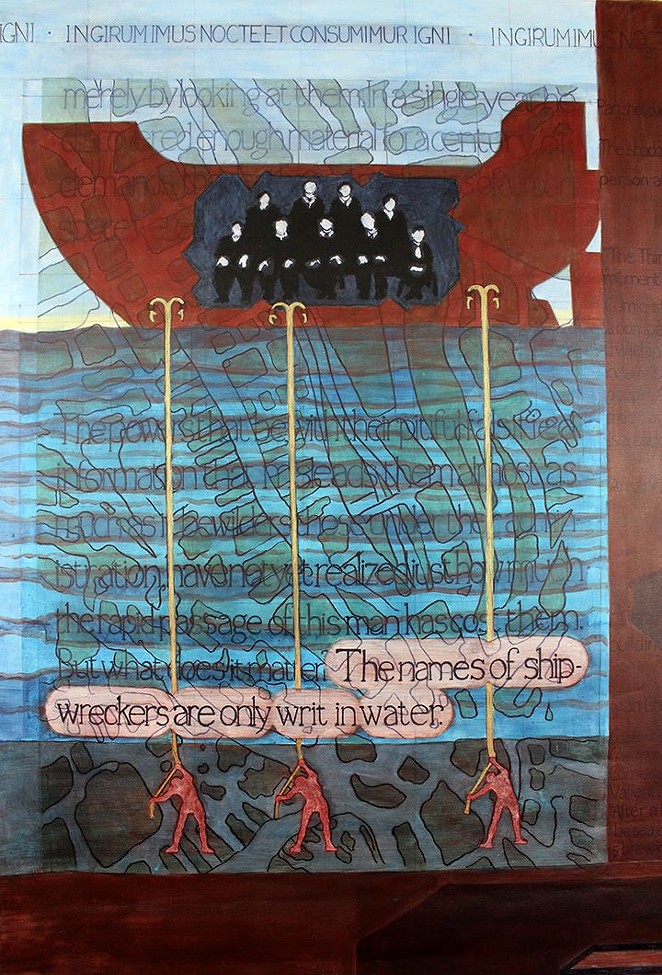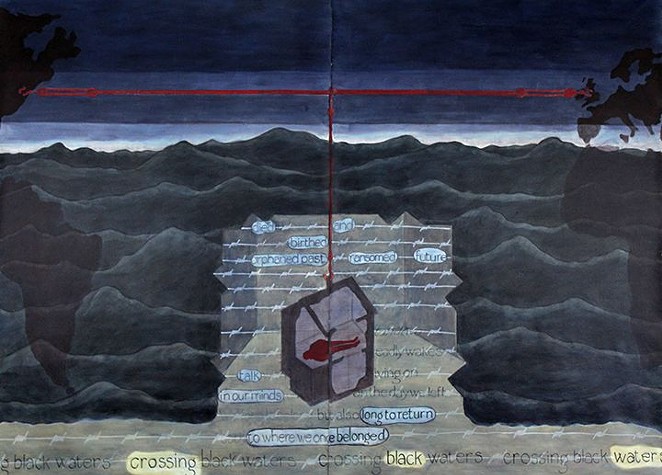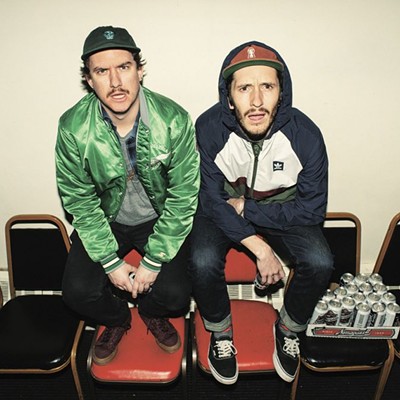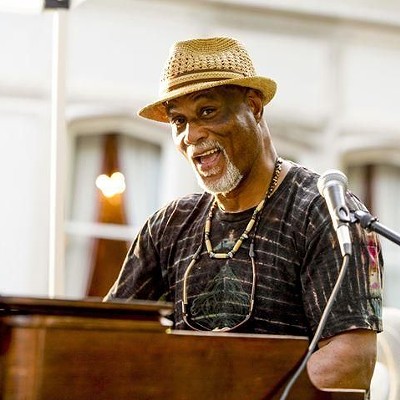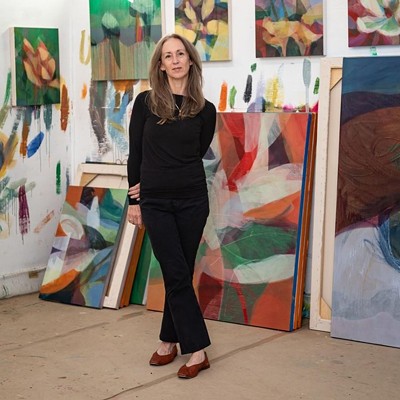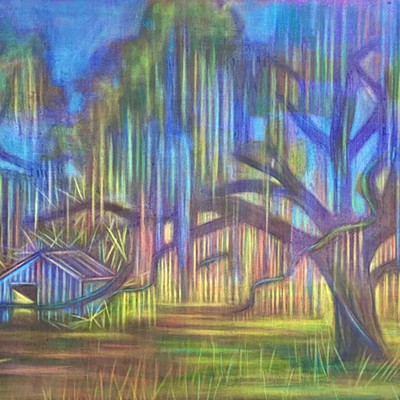IT ALL started with a simple question. What does it mean to be lost at sea?
That’s what the late local artist Bertha Husband asked Ships of the Sea curator Wendy Melton in an email two years ago. The discussion led to “Lost at Sea: The Liminal Essence of Immigration,” the new exhibition at Ships of the Sea.
The exhibition includes work by Husband, Simon Ford, Colin Lloyd, Milutin Pavlovic, and Kebedech Tekleab, none of whom were born in the United States.
While Husband passed away last spring, before she could see her idea come to fruition, her life and legacy is carried on through the work of her friends.
“We began planning ‘Lost at Sea’ a year ago,” explains Lloyd, from Bradford, England. “Bert was a true friend, my mentor and fellow traveler. Following her death, I was indeed lost at sea.”
Husband herself was from Scotland and had relocated to the United States via Nigeria, Pakistan and England, as Ships of the Sea’s director Tony Pizzo noted.
“Her thought and her work were always precise, and based on a rare combination of heart, research and imagination,” Pizzo said.
Two of Husband’s paintings are included in the exhibition, provided by her partner and co-creator Mary Jo Marchnight. “Lost at Sea” blends Husband’s interests seamlessly. In her work, she was fascinated with the horizon and with using allegory.
“Her thought and her work were always precise, and based on a rare combination of heart, research and imagination,” says Pizzo.
“As an autodidact, she gave us her personal vision of the world, speaking loudly and eloquently from the unspoken silence of knowledge,” remembers Pavlovic. “As a visual poet, she always maintained the dialogue open. Sharing was her thing.”
Husband loved to collaborate in exhibitions as well, and this collaboration with fellow immigrants is particularly relevant to our current political climate.
“The issues with which Bert was concerned are well represented in this exhibition by the contributions of her friends,” explains Pizzo. “They subsequently have a deep understanding of the effects in their own lives of what it means to be in a state of transition.”
While immigration and refugees were relevant during Husband’s life, they became stronger points of contention after her death, making “Lost at Sea” timely.
“As a seaport, the flow of immigrants into Savannah is part of our history and our character,” says Pizzo. “Whatever the initial purpose, over time we may forget the cost of this translocation—the loss of home culture and the hard realities of the relocation of families or disrupted families.
“These issues are part of our past, our present and our future, particularly in view of the ongoing worldwide refugee crisis. We hope this exhibition will serve as a bridge, linking our more abstract knowledge of what it meant to cross the ocean to an unknown land with the present-day realities of those facing the same choices. This more subtle emotional understanding might lead to sympathy and action..”
“Lost at Sea” will remain up through Jan. 7.

